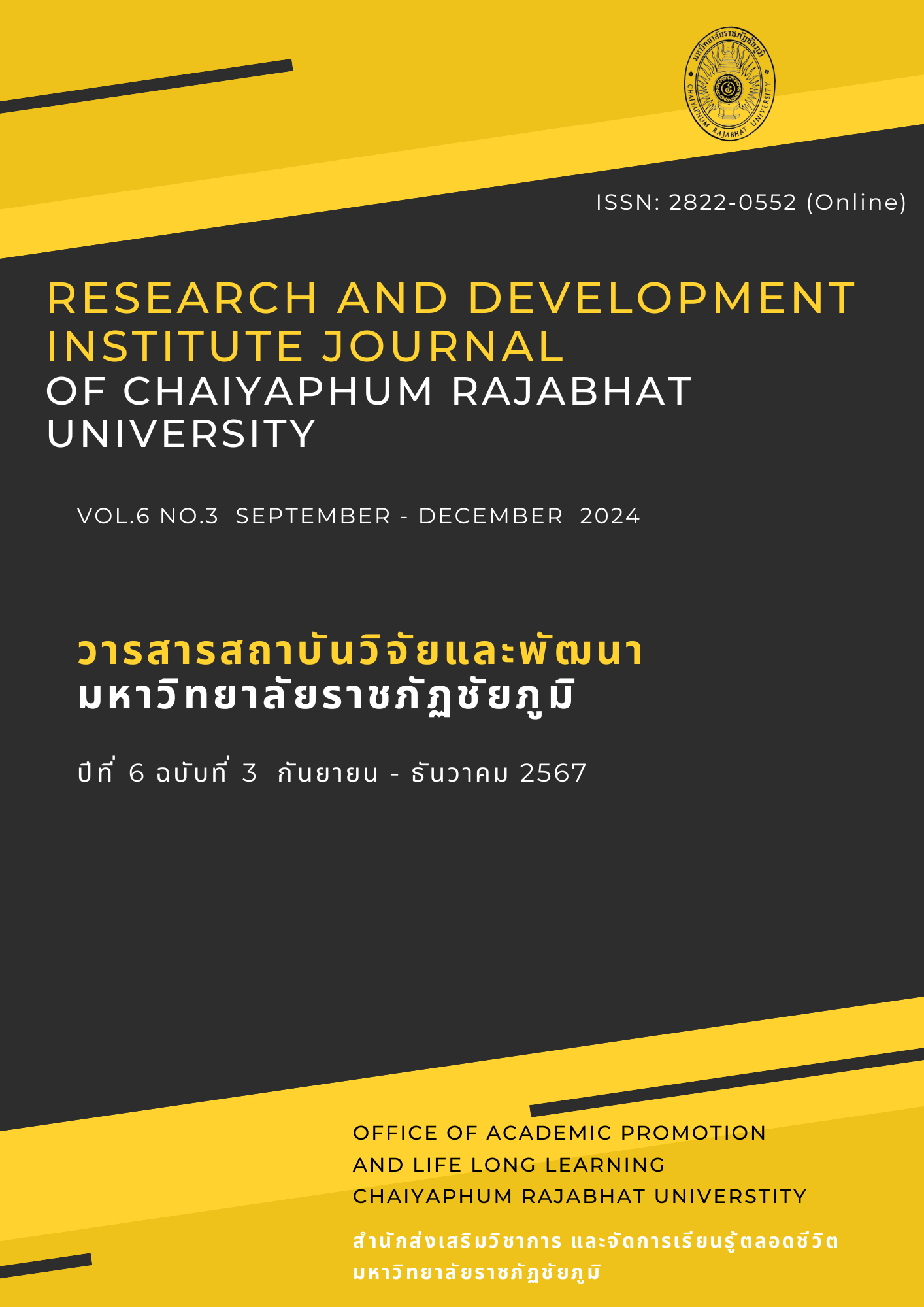การสำรวจการสื่อสารภาษาอังกฤษฐานสมรรถนะของพนักงานโรงแรม: การศึกษาวิเคราะห์ความต้องการ
Main Article Content
บทคัดย่อ
การวิจัยครั้งนี้มีวัตถุประสงค์เพื่อศึกษาความต้องการในการสื่อสารภาษาอังกฤษและสำรวจสมรรถนะที่พนักงานโรงแรมจำเป็นต้องมี โดยเฉพาะพนักงานในแผนกส่วนหน้า ได้แก่ แผนกต้อนรับ พนักงานอำนวยความสะดวก พนักงานยกสัมภาระ และพนักงานในร้านอาหาร ผู้เข้าร่วมการวิจัยแบ่งออกเป็นสองกลุ่ม คือ พนักงานโรงแรมจำนวน 20 คน และผู้บริหารระดับสูงของโรงแรมจำนวน 2 คน โดยโรงแรมที่ทำการศึกษามีคุณภาพตั้งแต่ระดับ 3 ดาวไปจนถึง 5 ดาว การเก็บข้อมูลใช้วิธีแบบผสมผสาน รวมทั้งการวิเคราะห์ข้อมูลเชิงปริมาณและเชิงคุณภาพ
ผลการวิจัยเชิงปริมาณพบว่าความสามารถด้านภาษาอังกฤษ ได้แก่ คำศัพท์เฉพาะ สำเนียงภาษาอังกฤษที่หลากหลาย ระดับของภาษาที่ใช้ในอุตสาหกรรมบริการและทักษะทางวิชาชีพที่เกี่ยวข้องกับการโรงแรม ได้แก่ การมีจิตบริการ การแก้ไขสถานการณ์เฉพาะหน้า และบุคลิกภาพ เป็นปัญหาสำคัญในสภาพแวดล้อมนี้ อย่างไรก็ตาม ผลการวิเคราะห์ข้อมูลเชิงคุณภาพชี้ให้เห็นว่า แม้พนักงานโรงแรมจะมีทักษะภาษาอังกฤษเพียงพอสำหรับการทำงานในภาคการโรงแรมแต่ยังขาดทักษะเฉพาะที่จำเป็นในแต่ละแผนก รวมถึงการขาดความตระหนักรู้ทางวัฒนธรรมที่มีความสำคัญต่อการสื่อสารกับชาวต่างชาติ
Article Details

อนุญาตภายใต้เงื่อนไข Creative Commons Attribution-NonCommercial-NoDerivatives 4.0 International License.
การอนุญาตให้ใช้ข้อความ เนื้อหา รูปภาพ ฯลฯ ของสิ่งพิมพ์ ผู้ใช้รายใดก็ตามที่จะอ่าน ดาวน์โหลด คัดลอก แจกจ่าย พิมพ์ ค้นหา หรือเชื่อมโยงไปยังข้อความทั้งหมดของบทความ รวบรวมข้อมูลสำหรับการจัดทำดัชนี ส่งต่อเป็นข้อมูลไปยังซอฟต์แวร์ หรือใช้เพื่อวัตถุประสงค์ทางกฎหมายอื่นใด แต่ห้ามนำไปใช้ในเชิงพาณิชย์หรือมีเจตนาเอื้อประโยชน์ทางธุรกิจใดๆ เผยแพร่ภายใต้สัญญาอนุญาตครีเอทีฟคอมมอนส์แบบแสดงที่มา-ไม่ใช้เพื่อการค้า (Creative Commons Attribution-NonCommercial-NoDerivatives 4.0 International License)

This work is licensed under a Creative Commons Attribution-NonCommercial-NoDerivatives 4.0 International License
เอกสารอ้างอิง
Aniroh, K. (2015). English-for-specific-purpose curriculum designing: Equipping the students of hospitality and tourism with global-job skills for global-job opportunities. In Proceedings of the 3rd AECon Asia-Pacific Education Conference, 257-268. Universitas Muhammadiyah Purwokerto. Retrieved from https://eprints.unmer.ac.id/id/eprint/33/
Bandura, A. (1997). Self-Efficacy: The Exercise of Control. W.H. Freeman and Company.
Boone, H. N., & Boone, D. A. (2012). Analyzing Likert data. Journal of Extension, 50(2), 1-5.
Canale, M., & Swain, M. (1980). Theoretical bases of communicative approaches to second language teaching and testing. Applied Linguistics, 1(1), 1-47.
Chantanont, R. (2012). A study of problems and needs for English communication improvement of hotel front office staff at hotels in Bangkok (Unpublished master’s thesis). Thammasat University, Language Institute.
Dörnyei, Z., & Ushioda E. (2021). Teaching and researching motivation in ESP courses. Routledge.
EHL Insights. (2024). Hospitality industry statistics to have on your radar 2024. https://hospitalityinsights.ehl.edu/hospitality-industry-statistics
Hwang, Y., & Lin, S. (2010). A study of medical students’ linguistic needs in Taiwan. The Asian ESP Journal, 6(1), 35-58.
Hutchinson, T., & Waters, A. (1987). English for specific purposes: A learning-centered approach. Cambridge University Press. http://dx.doi.org/10.1017/CBO9780511733031
Kim, K. B., & Kim, H. B. (2022). English communication and guest satisfaction in hotels: A text mining approach. 관광연구저널, 36(10), 53-69.
Kelly, S. (2010). Qualitative interviewing techniques and styles. In D. R. Bourgeault (Ed.), The Sage Handbook of Qualitative Methods in Health Research. Sage Publications.
Li, W., & Kline, S. (2022). Accent and communication challenges in the hotel industry. Journal of Hospitality Linguistics, 33(1), 72-88.
Likert, R. (1932). A technique for the measurement of attitudes. Archives of Psychology, 22(140), 1-55.
Outemzabet, B., & Sarnou, H. (2023). Exploring the significance of English-based communication for a community of medical academics in a public university teaching hospital in Algeria. English for Specific Purposes, 70, 116-130.
Palinkas, L. A., Horwitz, S. M., Green, A. C., Wisdom, J. P., Duan, N., & Hoagwood, K. (2015). Purposeful sampling for qualitative data collection and analysis in mixed method implementation research. Administration and Policy in Mental Health and Mental Health Services Research, 42(5), 533-544. https://doi.org/10.1007/s10488-013-0528-y
Prabhu, A., & Wani, P. (2015). A study of importance of English language proficiency in hospitality industry and the role of hospitality educators in enhancing the same amongst the students. Atithya: A Journal of Hospitality, 1(1), 6-13.
Richards, J. C. (2001). Curriculum Development in Language Teaching. Cambridge University Press.
Ruankam, T., & Cheunchaichon, Y. (2016). A Survey of Perceptions of English for Specific Purposes at Bungphra Commercial College, Phitsanulok. Lampang Rajabhat University Journal, 5(2), 77-94.
Savickas, M. L. (2011). Career adaptability: An integrative construct for life-span, life-space theory. The Career Development Quarterly, 45(3), 247-259. https://doi.org/10.1002/j.2161-0045.1997.tb00469.x
Sittitoon, P. (2019). Need analysis in English skills for hotel settings: A case study of business English student trainees (unpublished master’s independent study). Thammasat university, Thailand.
Sukying, A., Supunya N., & Phusawisot, P. (2023). ESP Teachers: Insights, challenges and needs in the EFL context. Theory and Practice in Language Studies, 13(2), 396-403. https://doi.org/10.17507/tpls.1302.14
Taherdoost, H. (2022). Designing a questionnaire for a research paper: A comprehensive guide to design and develop an effective questionnaire. Asian Journal of Managerial Science, 11(1), 8-16. https://doi.org/10.51983/ajms-2022.11.1.3087
Trang, T. T. T., & Phuong, V. T. (2023). Needs analysis about intercultural communicative competence among undergraduate tourism students. Journal of Psycholinguistic Research, 52(6), 2599-2620.
Wahyuni, S. (2021). English language needs for medical students: A link and match of academic and professional career. ENGLISH FRANCA: Academic Journal of English Language and Education, 5(1), 169.
Yang, H., Cheung, C., & Li, W. (2022). Intercultural communication competency practices in the hotel industry. Journal of China Tourism Research, 18(1), 162-184.


